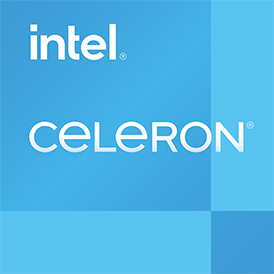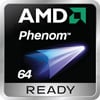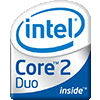
Intel Celeron N2930 Benchmark, Test and specs
Last updated:
The Intel Celeron N2930 is a 4 core processor. It can handle 4 threads simultaneously and was introduced in Q1/2014. The Intel Celeron N2930 is based on the 6. generation of the Intel Celeron series and requires a mainboard with the socket BGA 1170. The Intel Celeron N2930 scores 216 points with one CPU core in the Geekbench 5 benchmark. When using all CPU cores, the result is 719 points.

| Name: | Intel Celeron N2930 |
|---|---|
| Family: | Intel Celeron (165) |
| CPU group: | Intel Celeron J1000/N2000 (17) |
| Architecture: | Bay Trail |
| Segment: | Mobile |
| Generation: | 6 |
| Predecessor: | -- |
| Successor: | -- |
CPU Cores and Base Frequency
The 4 CPU cores of the Intel Celeron N2930 clock with 1.83 GHz (2.16 GHz). The number of CPU cores and the clock frequency of the processor are largely responsible for the overall performance.
| CPU Cores / Threads: | 4 / 4 |
|---|---|
| Core architecture: | normal |
| Cores: | 4x |
| Hyperthreading / SMT: | No |
|---|---|
| Overclocking: | No |
| Frequency: | 1.83 GHz |
| Turbo Frequency (1 Core): | 2.16 GHz |
| Turbo Frequency (4 Cores): | 2.16 GHz |
Internal Graphics
With the Intel HD Graphics (Bay Trail GT1), the Intel Celeron N2930 has an build in graphic solution. It has 4 SM processors, which have a total of 32 texture shaders. The iGPU not only enables games, but also significantly accelerates video playback.
| GPU name: | Intel HD Graphics (Bay Trail GT1) |
|---|---|
| GPU frequency: | 0.31 GHz |
| GPU (Turbo): | 0.85 GHz |
| Compute units: | 4 |
| Shader: | 32 |
| Hardware Raytracing: | No |
| Release date: | Q3/2013 |
| Max. displays: | 2 |
|---|---|
| Generation: | 7 |
| Direct X: | 11.2 |
| Technology: | 22 nm |
| Max. GPU Memory: | 2 GB |
| Frame Generation: | No |
Hardware codec support
Processors that have an integrated graphics can play videos faster and more efficiently. This can have a positive effect on the battery life of notebooks, for example.
| h265 / HEVC (8 bit): | No |
|---|---|
| h265 / HEVC (10 bit): | No |
| h264: | Decode / Encode |
| VP8: | No |
| VP9: | No |
| AV1: | No |
|---|---|
| AVC: | Decode / Encode |
| VC-1: | Decode |
| JPEG: | Decode |
Memory & PCIeThe Intel Celeron N2930 supports up to 8 GB memory in up to 2 (Dual Channel) memory channels. This results in a maximum memory bandwidth of 21.3 GB/s. |
|
| Memory type: | Memory bandwidth: |
|---|---|
| DDR3-1333 | 21.3 GB/s |
| Max. Memory: | 8 GB |
| Memory channels: | 2 (Dual Channel) |
| ECC: | No |
| PCIe: | 2.0 x 4 |
| PCIe Bandwidth: | 2.0 GB/s |
Thermal ManagementWith the TDP, the processor manufacturer specifies the cooling solution required for the processor. The Intel Celeron N2930 has a TDP of 7.5 W. |
|
|---|---|
| TDP (PL1 / PBP): | 7.5 W |
| TDP (PL2): | -- |
| TDP up: | -- |
| TDP down: | 4.5 W |
| Tjunction max.: | 100 °C |
Technical details
The Intel Celeron N2930 has a 2.00 MB large cache. The processor is manufactured in 22 nm. Modern production increases the efficiency of the processor.
| Technology: | 22 nm |
|---|---|
| Chip design: | Monolithic |
| Socket: | BGA 1170 |
| L2-Cache: | -- |
| L3-Cache: | 2.00 MB |
| AES-NI: | No |
| Operating systems: | Windows 10, Linux |
| Virtualization: | VT-x, VT-x EPT |
|---|---|
| Instruction set (ISA): | x86-64 (64 bit) |
| ISA extensions: | SSE4.1, SSE4.2 |
| Release date: | Q1/2014 |
| Release price: | 41 $ |
| Part Number: | -- |
| Documents: | Technical data sheet |
Rate this processor
Benchmark results

The benchmark results for the Intel Celeron N2930 have been carefully checked by us. We only publish benchmark results that have been created by us or that have been submitted by a visitor and then checked by a team member. All results are based on and fullfill our benchmark guidelines.
Geekbench 5, 64bit (Single-Core)
Geekbench 5 is a cross plattform benchmark that heavily uses the systems memory. A fast memory will push the result a lot. The single-core test only uses one CPU core, the amount of cores or hyperthreading ability doesn't count.

|
Intel Celeron N2940
4C 4T @ 2.25 GHz |
||

|
Intel Celeron N3150
4C 4T @ 2.08 GHz |
||

|
Intel Celeron N2807
2C 2T @ 2.16 GHz |
||
|
|
Intel Celeron N2930
4C 4T @ 2.16 GHz |
||

|
AMD GX-217GA
2C 2T @ 1.65 GHz |
||

|
Intel Pentium T2310
2C 2T @ 1.46 GHz |
||

|
AMD Phenom X4 9600
4C 4T @ 2.30 GHz |
||
Geekbench 5, 64bit (Multi-Core)
Geekbench 5 is a cross plattform benchmark that heavily uses the systems memory. A fast memory will push the result a lot. The multi-core test involves all CPU cores and taks a big advantage of hyperthreading.

|
AMD A6-6400K
2C 2T @ 4.10 GHz |
||

|
Intel Pentium E5700
2C 2T @ 3.00 GHz |
||

|
MediaTek Helio P22
8C 8T @ 2.00 GHz |
||
|
|
Intel Celeron N2930
4C 4T @ 2.16 GHz |
||

|
Intel Celeron J1850
4C 4T @ 2.00 GHz |
||

|
AMD A10-4655M
4C 4T @ 2.80 GHz |
||

|
AMD Athlon II X2 240e
2C 2T @ 2.80 GHz |
||
Geekbench 6 (Single-Core)
Geekbench 6 is a benchmark for modern computers, notebooks and smartphones. What is new is an optimized utilization of newer CPU architectures, e.g. based on the big.LITTLE concept and combining CPU cores of different sizes. The single-core benchmark only evaluates the performance of the fastest CPU core, the number of CPU cores in a processor is irrelevant here.

|
MediaTek Helio A20
4C 4T @ 1.80 GHz |
||

|
Intel Celeron N2807
2C 2T @ 2.16 GHz |
||

|
MediaTek Helio P23
8C 8T @ 2.50 GHz |
||
|
|
Intel Celeron N2930
4C 4T @ 2.16 GHz |
||

|
Intel Celeron N3150
4C 4T @ 2.08 GHz |
||

|
Samsung Exynos 7880
8C 8T @ 1.90 GHz |
||

|
Qualcomm Snapdragon 450
8C 8T @ 1.80 GHz |
||
Geekbench 6 (Multi-Core)
Geekbench 6 is a benchmark for modern computers, notebooks and smartphones. What is new is an optimized utilization of newer CPU architectures, e.g. based on the big.LITTLE concept and combining CPU cores of different sizes. The multi-core benchmark evaluates the performance of all of the processor's CPU cores. Virtual thread improvements such as AMD SMT or Intel's Hyper-Threading have a positive impact on the benchmark result.

|
Intel Celeron N3160
4C 4T @ 2.24 GHz |
||

|
MediaTek MT8766B
8C 8T @ 2.00 GHz |
||

|
Intel Celeron 1017U
2C 2T @ 1.60 GHz |
||
|
|
Intel Celeron N2930
4C 4T @ 2.16 GHz |
||

|
Intel Celeron J1850
4C 4T @ 2.00 GHz |
||

|
AMD Sempron 3850
4C 4T @ 1.30 GHz |
||

|
Intel Celeron N2920
4C 4T @ 2.00 GHz |
||
Cinebench R20 (Single-Core)
Cinebench R20 is the successor of Cinebench R15 and is also based on the Cinema 4 Suite. Cinema 4 is a worldwide used software to create 3D forms. The single-core test only uses one CPU core, the amount of cores or hyperthreading ability doesn't count.

|
AMD Athlon 5150
4C 4T @ 1.60 GHz |
||

|
Intel Pentium N3710
4C 4T @ 2.56 GHz |
||

|
Intel Pentium D 915
2C 2T @ 2.80 GHz |
||
|
|
Intel Celeron N2930
4C 4T @ 2.16 GHz |
||

|
Intel Celeron J1900
4C 4T @ 2.42 GHz |
||

|
Intel Celeron N2920
4C 4T @ 2.00 GHz |
||

|
AMD E-350
2C 2T @ 1.60 GHz |
||
Cinebench R20 (Multi-Core)
Cinebench R20 is the successor of Cinebench R15 and is also based on the Cinema 4 Suite. Cinema 4 is a worldwide used software to create 3D forms. The multi-core test involves all CPU cores and taks a big advantage of hyperthreading.

|
AMD A6-9225
2C 2T @ 2.60 GHz |
||

|
Intel Core m3-7Y30
2C 4T @ 2.00 GHz |
||

|
AMD Athlon 5150
4C 4T @ 1.60 GHz |
||
|
|
Intel Celeron N2930
4C 4T @ 2.16 GHz |
||

|
AMD A6-6400K
2C 2T @ 4.10 GHz |
||

|
Intel Celeron N2920
4C 4T @ 2.00 GHz |
||

|
AMD A4-3400
2C 2T @ 2.70 GHz |
||
iGPU - FP32 Performance (Single-precision GFLOPS)
The theoretical computing performance of the internal graphics unit of the processor with simple accuracy (32 bit) in GFLOPS. GFLOPS indicates how many billion floating point operations the iGPU can perform per second.

|
Intel Pentium J2900
Intel HD Graphics (Bay Trail GT1) @ 0.90 GHz |
||

|
Intel Pentium N3530
Intel HD Graphics (Bay Trail GT1) @ 0.90 GHz |
||

|
Intel Pentium N3540
Intel HD Graphics (Bay Trail GT1) @ 0.90 GHz |
||
|
|
Intel Celeron N2930
Intel HD Graphics (Bay Trail GT1) @ 0.85 GHz |
||

|
Intel Pentium J2850
Intel HD Graphics (Bay Trail GT1) @ 0.85 GHz |
||

|
Intel Celeron N2940
Intel HD Graphics (Bay Trail GT1) @ 0.85 GHz |
||

|
Intel Celeron J1900
Intel HD Graphics (Bay Trail GT1) @ 0.85 GHz |
||
Estimated results for PassMark CPU Mark
Some of the CPUs listed below have been benchmarked by CPU-monkey. However the majority of CPUs have not been tested and the results have been estimated by a CPU-monkey’s secret proprietary formula. As such they do not accurately reflect the actual Passmark CPU mark values and are not endorsed by PassMark Software Pty Ltd.

|
Intel Atom x5-E8000
4C 4T @ 1.04 GHz |
||

|
Intel Pentium B950
2C 2T @ 2.10 GHz |
||

|
AMD Athlon II X2 240
2C 2T @ 2.80 GHz |
||
|
|
Intel Celeron N2930
4C 4T @ 2.16 GHz |
||

|
AMD Athlon II X2 240e
2C 2T @ 2.80 GHz |
||

|
Intel Core2 Duo E7300
2C 2T @ 2.66 GHz |
||

|
Intel Core2 Duo E7200
2C 2T @ 2.53 GHz |
||
Cinebench R15 (Single-Core)
Cinebench R15 is the successor of Cinebench 11.5 and is also based on the Cinema 4 Suite. Cinema 4 is a worldwide used software to create 3D forms. The single-core test only uses one CPU core, the amount of cores or hyperthreading ability doesn't count.

|
Intel Atom x5-Z8300
4C 4T @ 1.84 GHz |
||

|
Intel Celeron N2806
2C 2T @ 2.00 GHz |
||

|
Intel Celeron N2810
2C 2T @ 2.00 GHz |
||
|
|
Intel Celeron N2930
4C 4T @ 2.16 GHz |
||

|
AMD A4-5000
4C 4T @ 1.50 GHz |
||

|
Intel Atom x5-E8000
4C 4T @ 2.00 GHz |
||

|
AMD E1-6010
2C 2T @ 1.35 GHz |
||
Cinebench R15 (Multi-Core)
Cinebench R15 is the successor of Cinebench 11.5 and is also based on the Cinema 4 Suite. Cinema 4 is a worldwide used software to create 3D forms. The multi-core test involves all CPU cores and taks a big advantage of hyperthreading.

|
AMD A4-4000
2C 2T @ 3.20 GHz |
||

|
Intel Pentium 2117U
2C 2T @ 1.80 GHz |
||

|
Intel Core i3-4010Y
2C 4T @ 1.30 GHz |
||
|
|
Intel Celeron N2930
4C 4T @ 2.16 GHz |
||

|
Intel Core2 Duo E6600
2C 2T @ 2.40 GHz |
||

|
AMD A6-9220
2C 2T @ 2.70 GHz |
||

|
Intel Atom x5-Z8300
4C 4T @ 1.84 GHz |
||
Benchmarks

Geekbench 5 (SC)
2,488 entries
2,488 entries

Geekbench 5 (MC)
2,461 entries
2,461 entries

Geekbench 6 (SC)
1,755 entries
1,755 entries

Geekbench 6 (MC)
1,703 entries
1,703 entries

Cinebench R20 (SC)
656 entries
656 entries

Cinebench R20 (MC)
604 entries
604 entries

FP32 SP (iGPU)
2,026 entries
2,026 entries

PassMark CPU-Mark
2,392 entries
2,392 entries

Cinebench R15 (SC)
1,106 entries
1,106 entries

Cinebench R15 (MC)
1,101 entries
1,101 entries

Geekbench 3 (SC)
942 entries
942 entries

Geekbench 3 (MC)
938 entries
938 entries

Cinebench R11.5 (SC)
825 entries
825 entries

Cinebench R11.5 (MC)
836 entries
836 entries

Cinebench R11.5 iGPU
383 entries
383 entries
Popular comparisons
back to index




